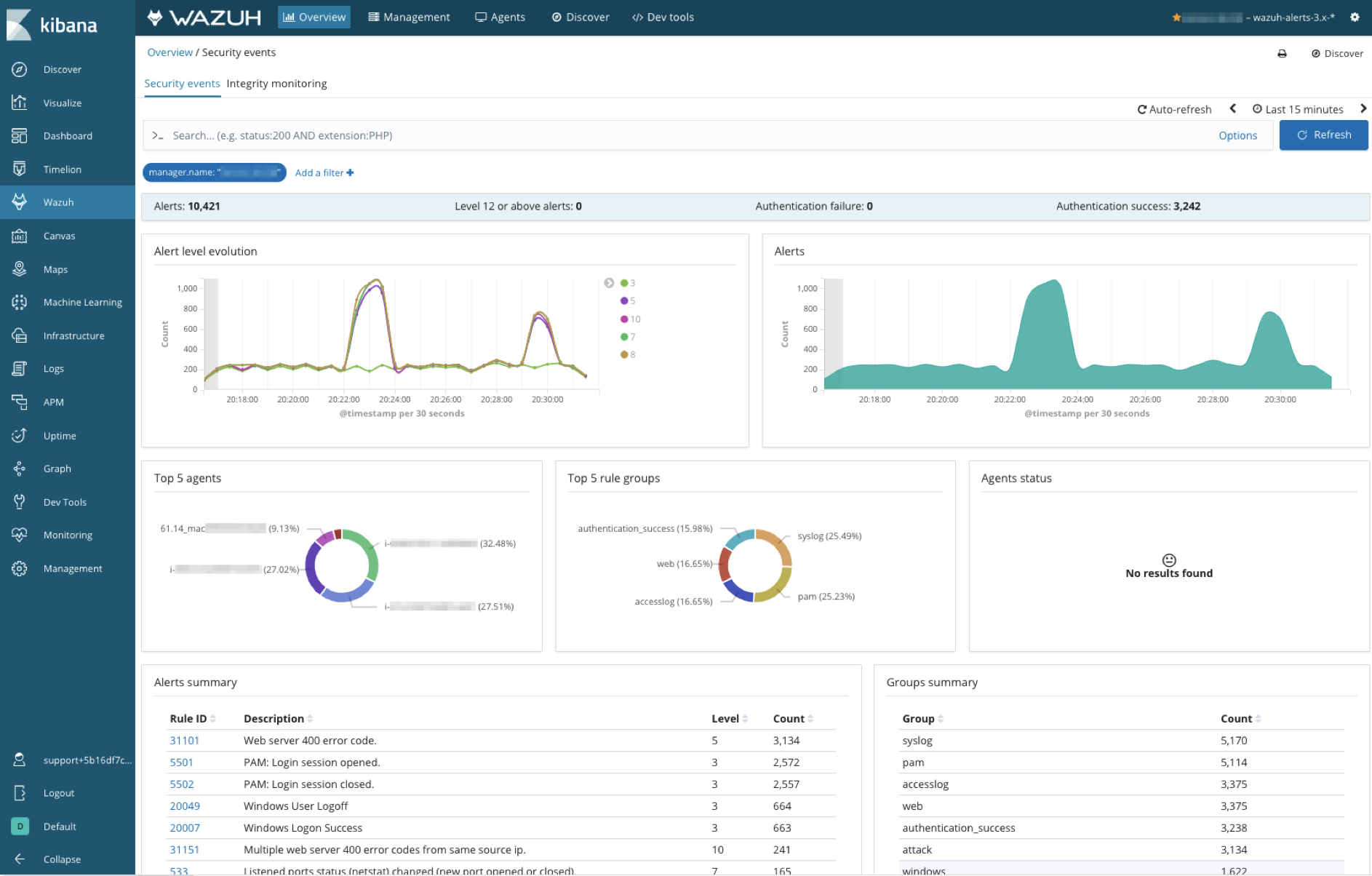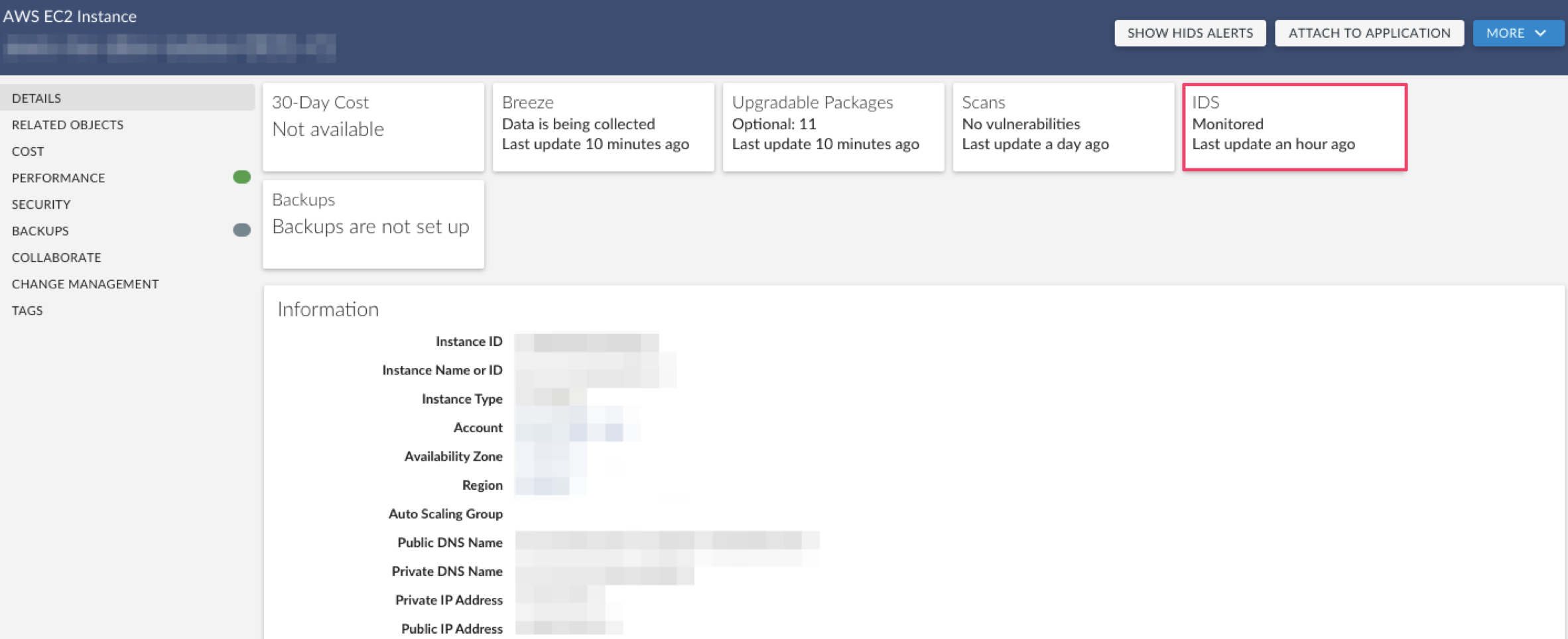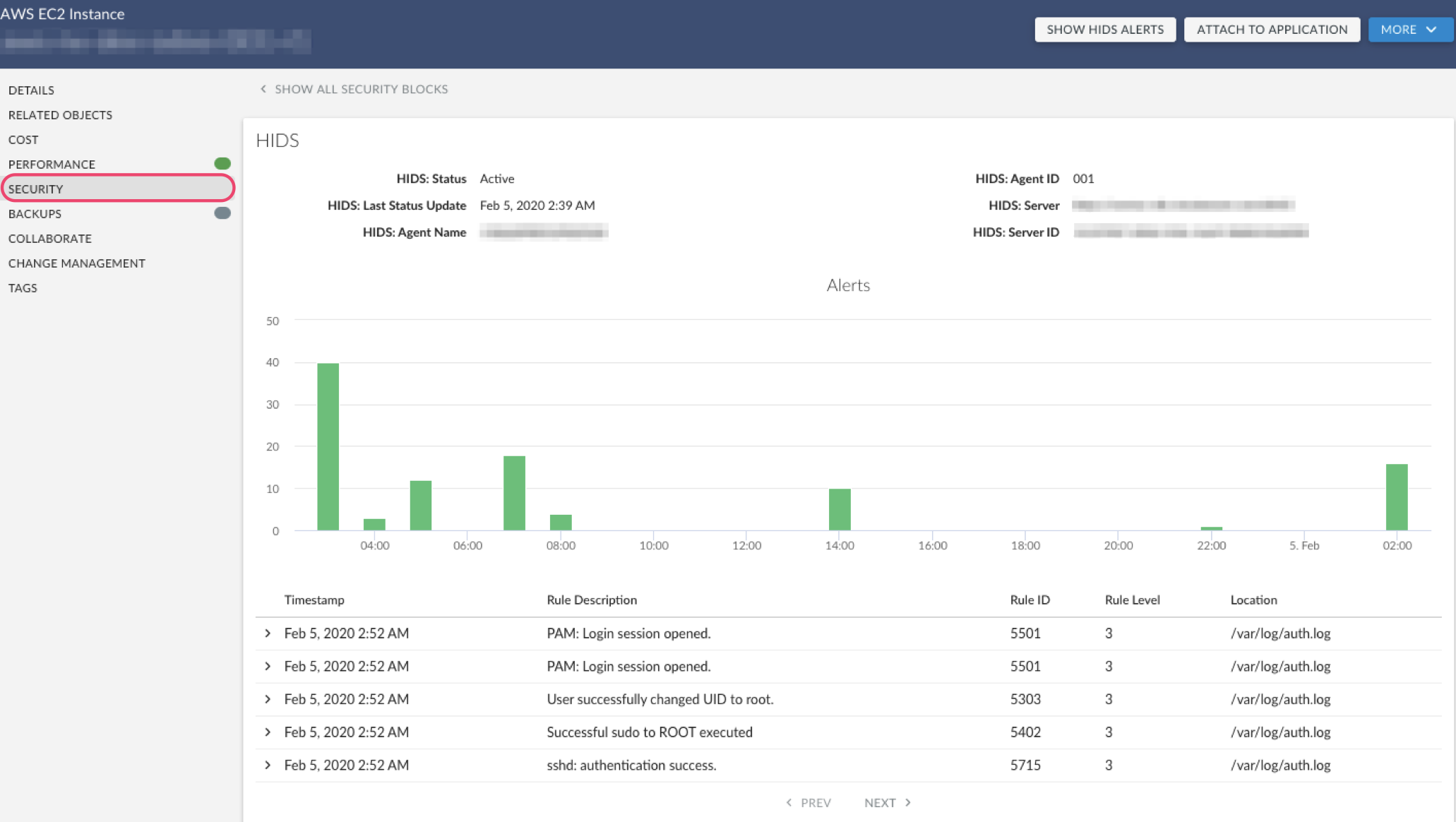Intrusion Detection - Overview
This page provides an overview of Cloudaware’s Intrusion Detection (IDS) capabilities.
About
Cloudaware Intrusion Detection is a full platform to monitor and control systems. It mixes together all the aspects of HIDS (host-based intrusion detection), log monitoring and SIM/SIEM together in a simple, powerful solution.
Features
Compliance Requirements
Cloudaware IDS helps customers meet specific compliance requirements such as PCI, HIPAA etc. It lets customers detect and alert on unauthorized file system modifications and malicious behavior embedded in the log files of COTS products as well as custom applications. For PCI, it covers the sections of file integrity monitoring (PCI 11.5, 10.5), log inspection and monitoring (section 10) and policy enforcement/checking.
Multi Platform
Cloudaware IDS lets customers implement a comprehensive host based intrusion detection system with fine grained application/server specific policies across multiple platforms such as Linux, Solaris, AIX, HP-UX, BSD, Windows, Mac and VMWare ESX.
Real-time and Configurable Alerts
Cloudaware IDS lets customers configure incidents they want to be alerted on which lets them focus on raising the priority of critical incidents over the regular noise on any system. Integration with SMTP, SMS and Syslog allows customers to be on top of alerts by sending these on to e-mail and handheld devices such as cell phones and pagers. Active response options to block an attack immediately is also available.
Integration with Current Infrastructure
Cloudaware IDS will integrate with current investments from customers such as SIM/SEM (Security Incident Management/Security Events Management) products for centralized reporting and correlation of events.
Centralized Management
Cloudaware IDS provides a simplified centralized management server to manage policies across multiple operating systems. Additionally, it also lets customers define server specific overrides for finer-grained policies.
Agent and Agentless Monitoring
Cloudaware IDS offers the flexibility of agent-based and agentless monitoring of systems and networking components such as routers and firewalls. It lets customers who have restrictions on software being installed on systems (such as FDA approved systems or appliances) meet security and compliance needs.
HIDS Server Deployment Options
Cloudaware HIDS solution consists of three parts:
IDS Agent
IDS Server(s)
IDS Dashboard
Agents are deployed onto every host where Intrusion Detection capabilities are desired. IDS Servers are managed by Cloudaware if a customer is using Managed IDS option.
Optionally, customers can deploy their own IDS servers. IDS dashboard is part of the Cloudaware and all IDS servers report into the dashboard. There are two ways to deploy Cloudaware IDS services.
Managed IDS
Using Managed IDS deployment option, customers leverage IDS servers that are managed by Cloudaware.
.png?inst-v=8eff07d5-b5d9-4f13-90a1-c720e15351fc)
Advantages | Disadvantages |
|---|---|
| Not able to deploy common OSSEC customizations without involving Cloudaware support. |
Customer-Managed IDS
Under this approach customers maintain their own set of IDS servers and are responsible for many operational aspects including backup, disaster recovery and availability. Cloudaware recommends one IDS server per 500 agents and that IDS servers are deployed in the same region as agents.
Customers may also choose to deploy a hybrid approach where some agents use Cloudaware-managed IDS servers and some agents user customer-managed IDS servers.
Wazuh
Wazuh is a Host-based Intrusion Detection service provided by Cloudaware via Kibana platform user interface. You can access Wazuh application from Cloudaware Launcher.
You can use Raw Data UI to query & filter your data and/or create Dashboards to review the summary of alerts on an instance level, monitor status of agents and build any vizualizations that are meaningful to you:

IDS Status in CMDB
If Intrusion Detection module is enabled, check an instance in Cloudaware CMDB. The tile 'IDS' may display 3 values:
Monitored
Not monitored
Under Attack

Click the tab 'Security' to review HIDS Alerts:

